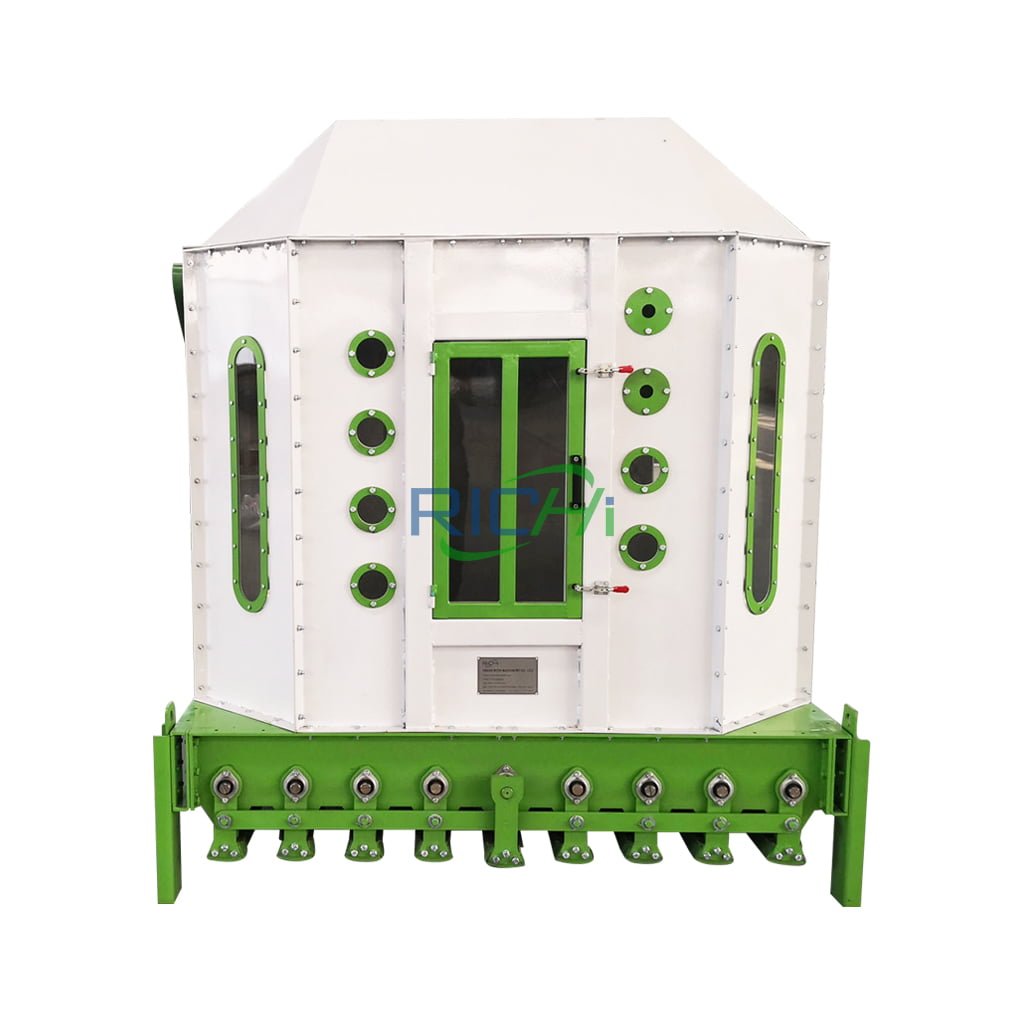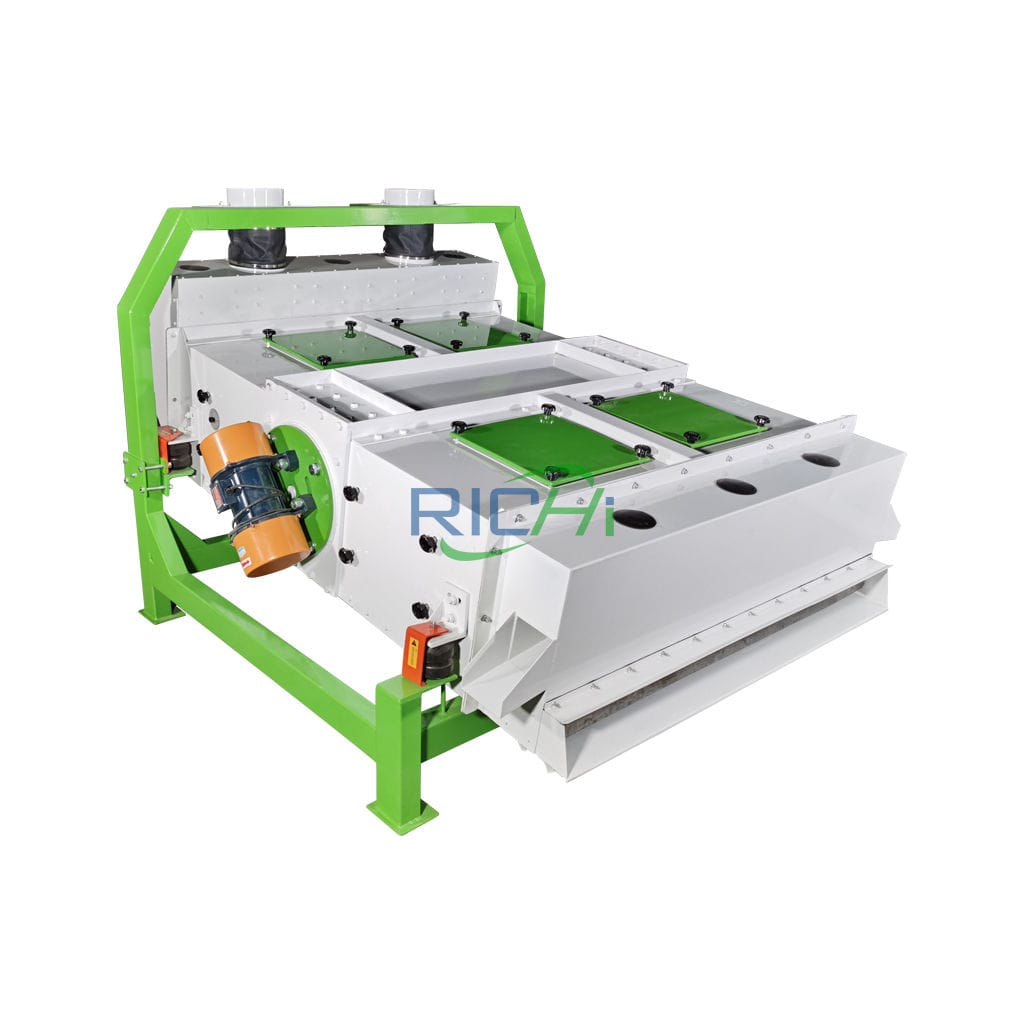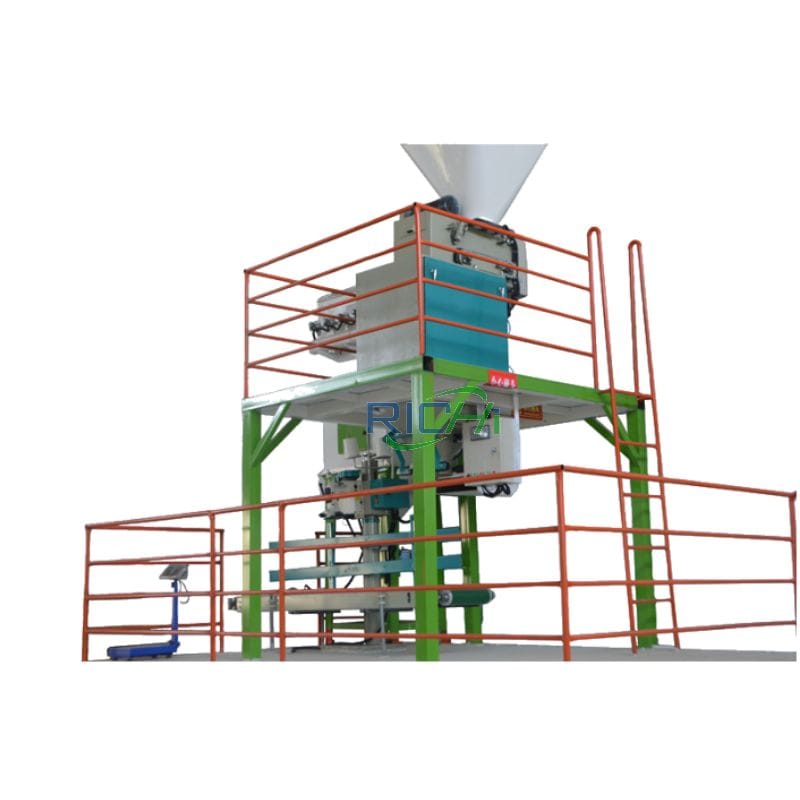
Organic Fertilizer Production Plant Cost
Organic fertilizer production plant cost is generally between 20,000-300,000 USD.
Project cost is the basis for carrying out the project. Combined with the type of product to be processed, process plan, organic fertilizer equipment configuration, civil engineering and project operation costs, labor costs, etc., it is easy to calculate the “cost of setting up an organic fertilizer plant”.

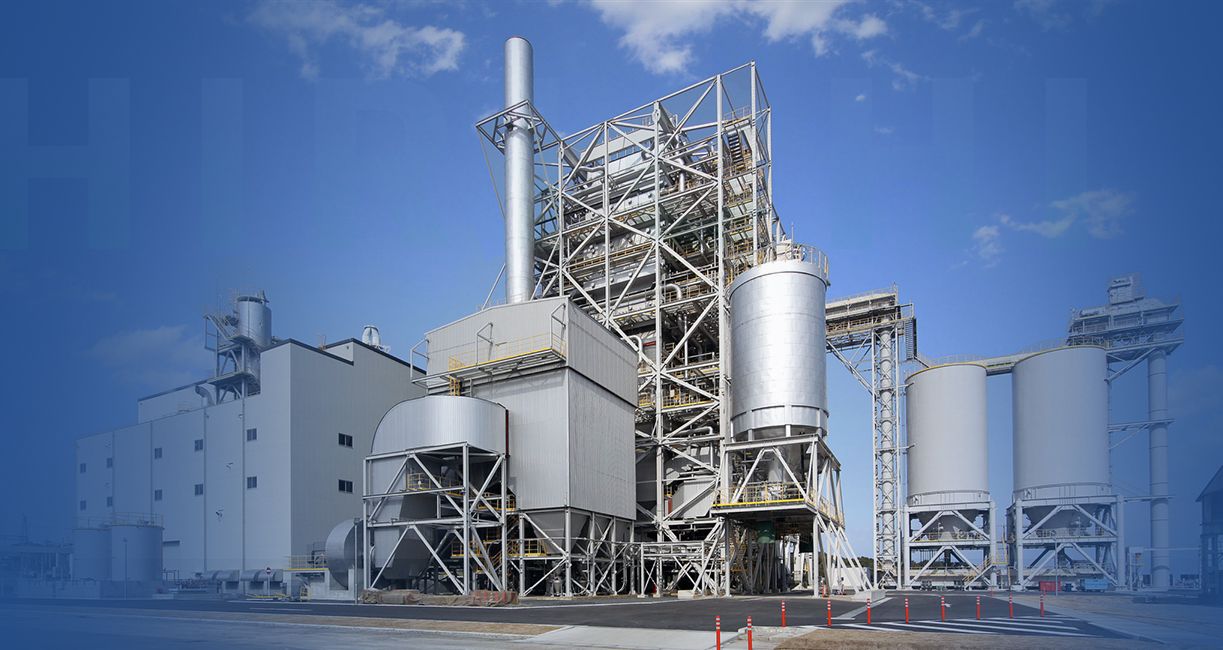
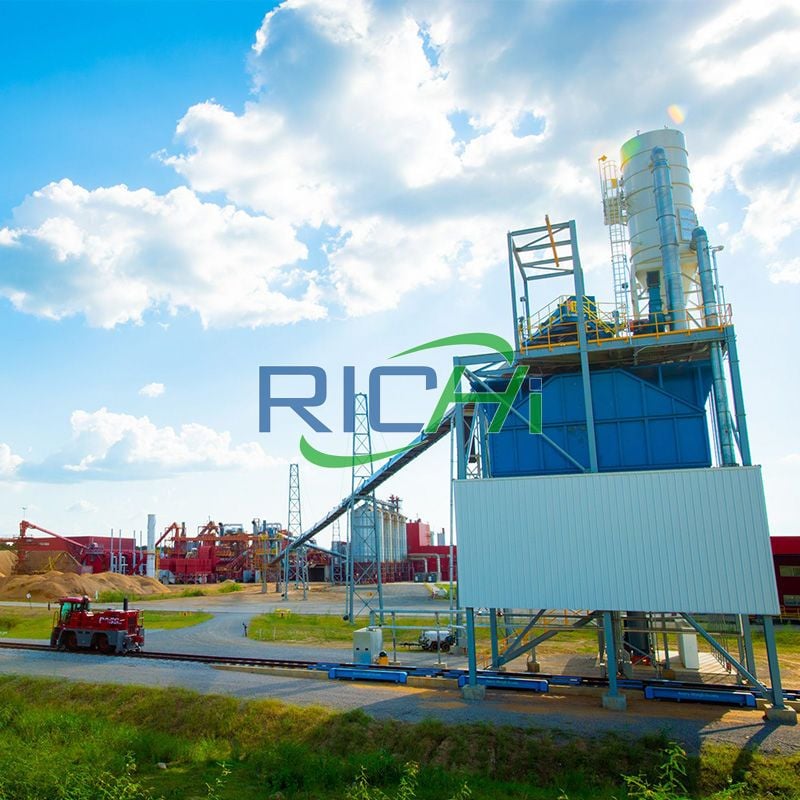
Organic fertilizer production plant is a comprehensive system for processing organic fertilizer. Organic fertilizer refers to a type of fertilizer that contains organic matter and can not only provide a variety of inorganic and organic nutrients for crops, but also fertilize and improve the soil.
The organic fertilizer industry is the basic industry of the global economy. It is directly related to agricultural and industrial production.
Compared with chemical fertilizers, it has the advantages of small impact on the environment and long-lasting fertilizer effect. It is one of the important fertilizers to ensure the food supply of various countries. As the use of chemical fertilizers continues to be restricted, there is huge room for growth in the scale of organic fertilizers in the future.
RICHI Machinery has been providing organic fertilizer manufacturing plants with solutions to complete their production activities since 1995. Whether you need assistance with fermentation, crushing, mixing, granulation, packaging, or palletizing, RICHI is prepared to fulfill your needs at any level of your organic fertilizer plant project and see it to its completion.
- Capacity:1-60T/H
- Applicable customers: organic fertilizer plants, organic fertilizer factories, organic fertilizer companies, breeding farm, etc.
Are you looking for a competent partner for turnkey production? Then you have found the right partner! Contact us for technical support & organic fertilizer production plant cost!
Composition of organic fertilizer production plant cost
Investing in building an organic fertilizer plant involves many cost factors. The following are the main components of organic fertilizer production plant cost:
- Land cost:
The first step in building an organic fertilizer plant is to obtain land. This may involve purchasing land or leasing land. The cost of land includes the purchase price or rent, as well as other related expenses such as land surveys, deed fees, etc. - Construction costs:
This includes costs such as design, planning and construction. Design costs include architectural designer fees, engineering drawing fees, etc. Construction costs may include organic fertilizer production plant building contractor fees, materials costs, installation fees, etc. - Equipment cost:
Organic fertilizer production plants need organic fertilizer equipment to carry out production activities. These equipment may include organic fertilizer processing equipment, laboratory equipment, on-site transportation equipment, maintenance tools, etc. Equipment costs may include purchase costs, installation costs, maintenance costs, etc. - Labor costs:
An organic fertilizer production plant requires employees to run. Labor costs include wages, benefits, training and other expenses. - Raw material costs:
Organic fertilizer production plants need raw materials to produce products. Raw material costs include purchase costs, transportation costs, storage costs, etc. - Financial costs:
including loan interest, handling fees and other fund-related expenses. - Other fees:
In addition to the above fees, there are many other fees, such as organic fertilizer production license fees, insurance fees, maintenance fees, etc.
The above are the main components of cost in investing in and building an organic fertilizer production plant but the specific investment amount also requires detailed planning and calculation based on factory scale, product type, process plan, equipment selection, geographical location and other factors. Adequate research and planning are required before investing to ensure a successful investment.
Different capacity, different organic fertilizer production plant cost
Generally speaking, the cost of setting up a fertilizer plant is different with different output. The greater the output and scale, the higher the investment cost. But according to our past projects, a organic fertilizer production line with a small output and a complex process, and a production line with a large output and a simple process, sometimes the price of the former is higher.
Therefore, output and scale are only one of the reference standards, and the organic fertilizer plant cost also needs to be determined based on the final process plan and equipment configuration.
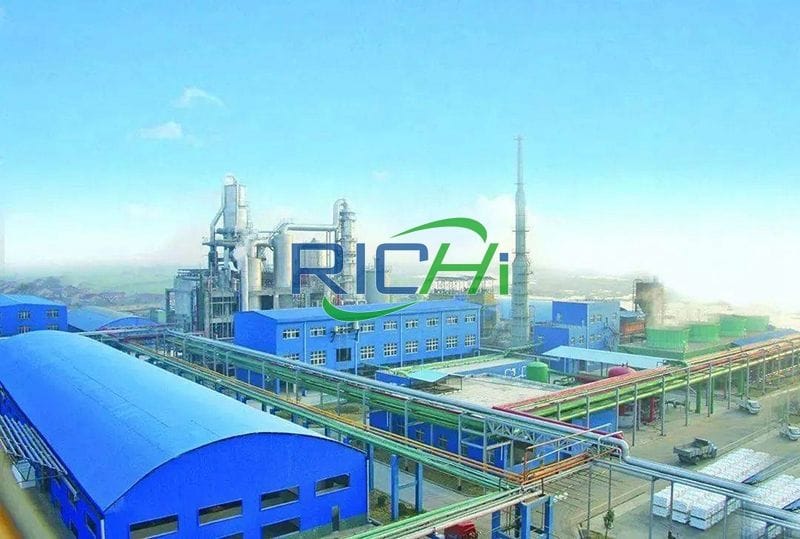
The following are the fertilizer manufacturing plant costs with different outputs. They are only for the complete set of equipment, excluding civil engineering and other prices.
- 1-2T/H small fertilizer plant cost: 50,000-200,000USD
- 3-4 T/H organic fertilizer manufacturing plant cost: 70,000-280,000 USD
- 5-6 T/H organic fertilizer pellet plant cost: 100,000-380,000 USD
- 6-8 T/H organic fertilizer plant cost: 120,000-450,000 USD
- 8-10 T/H organic fertilizer production plant cost: 150,000-600,000 USD
- 10-12 T/H organic fertilizer plant cost: 250,000-1,100,000USD
- 12-15T/H fertilizer plant cost: 320,000-1,300,000USD
- 15-20T/H organic fertilizer production plant cost: 380,000-1,500,000 USD
- …
At RICHI Machinery, we believe in seeing every organic fertilizer production project through. We’ll be with you every step of the way to deliver a premium organic fertilizer production plant to your customers.
Different project, different organic fertilizer production plant cost
All our organic fertilizer plant projects are customized according to the customer’s product type and process needs. Therefore, different projects have different organic fertilizer production plant costs. Moreover, our customized lines are always suitable for any company.
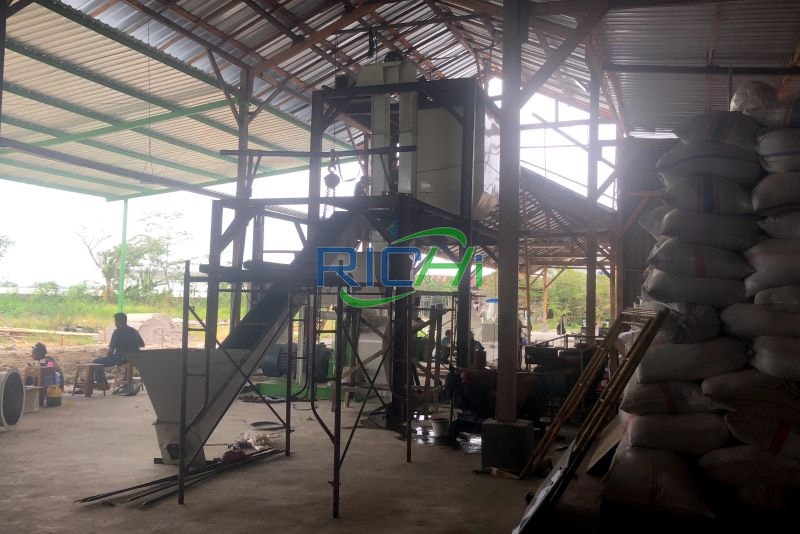
organic fertilizer production plant In Argentina
- Country: Argentina
- Production: 2500 t/a
- Ingredients: industrial waste
- price: 80,000 USD
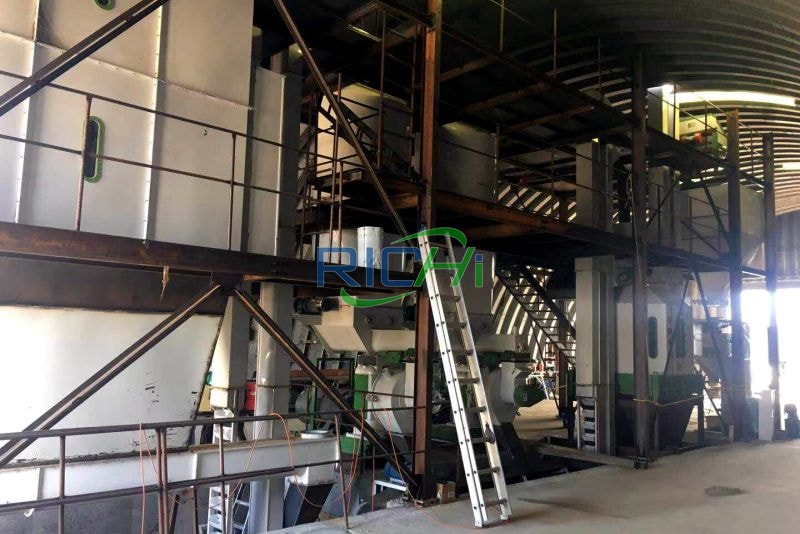
organic fertilizer production plant In Mexico
- Country: Mexico
- Production: 10,000 T/A
- Ingredients: livestock manure
- price: US$110,000
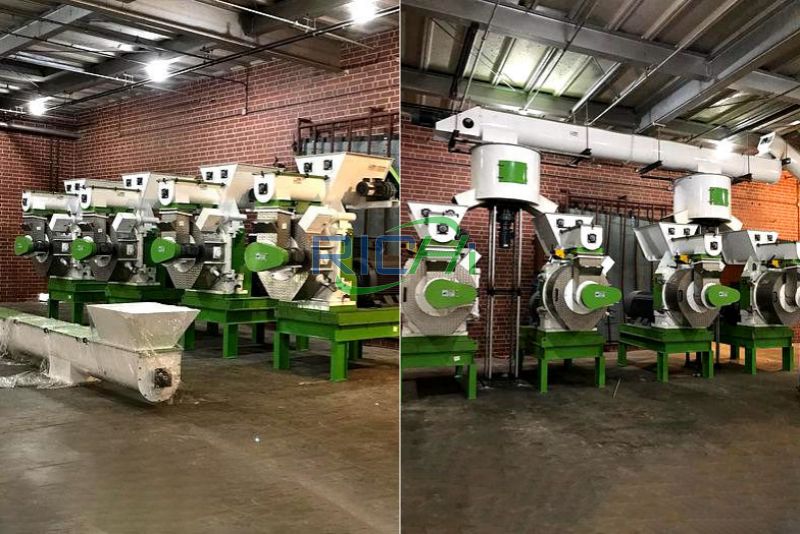
organic fertilizer production plant In United States
- Country: United States
- Production: 50,000 T/A
- Ingredients: poultry litter
- price: US$430,000
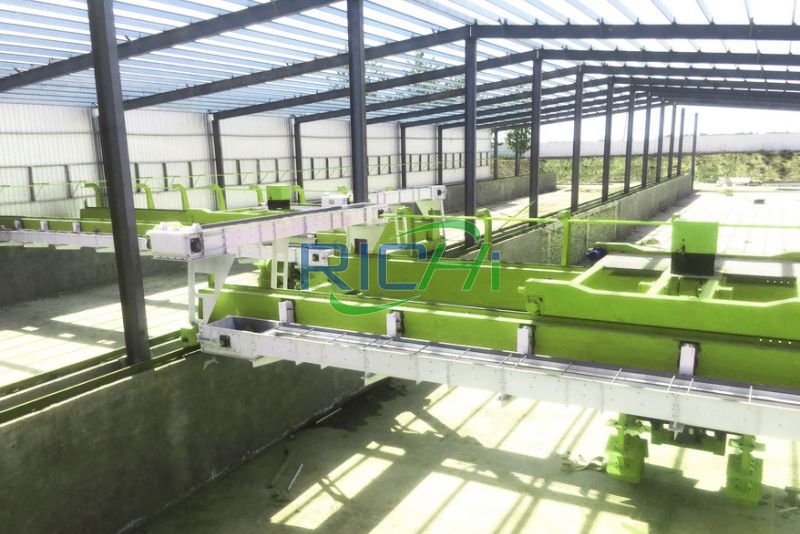
organic fertilizer production plant In Lithuania
- Country: Lithuania
- Production: 35,000 T/A
- Ingredients: food waste
- price: 410,000USD
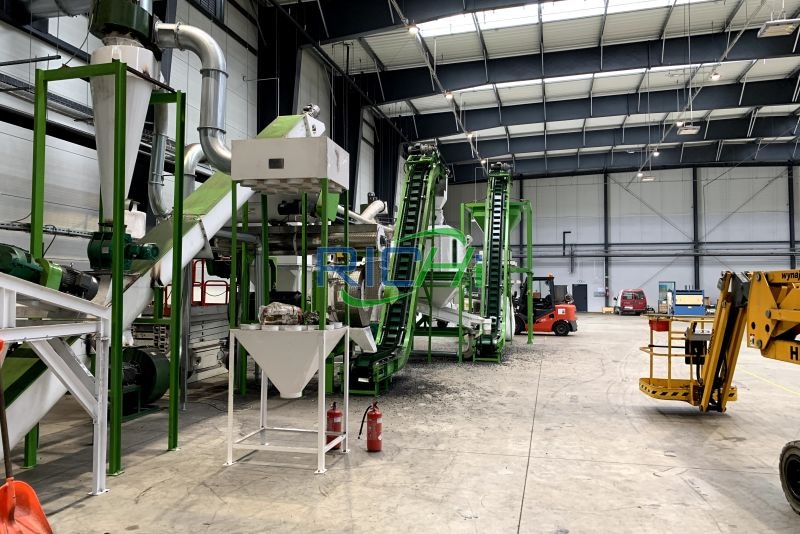
organic fertilizer plant In Thailand
- Country: Thailand
- Production: 55,000 T/A
- Ingredients: chicken manure
- cost: 570,000 USD
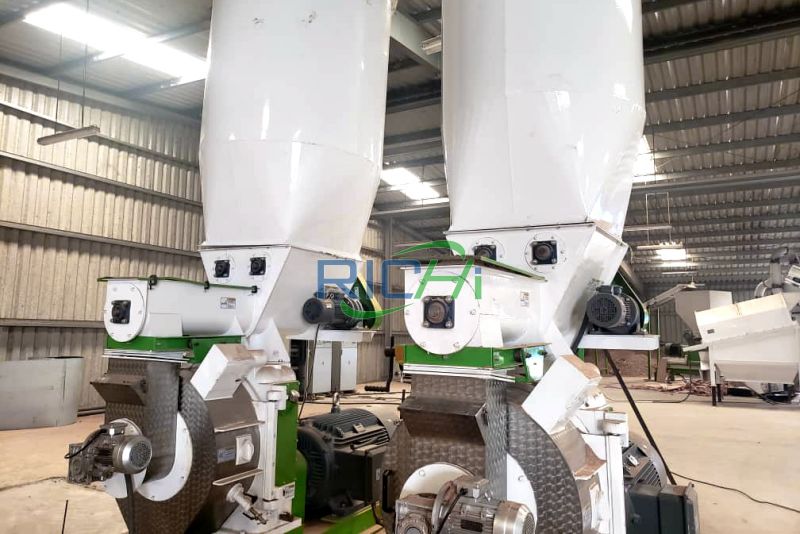
organic fertilizer plant In Spain
- Country: Spain
- Production: 10,000 T/A
- Ingredients: animal manure, straw
- cost: 190,000 USD
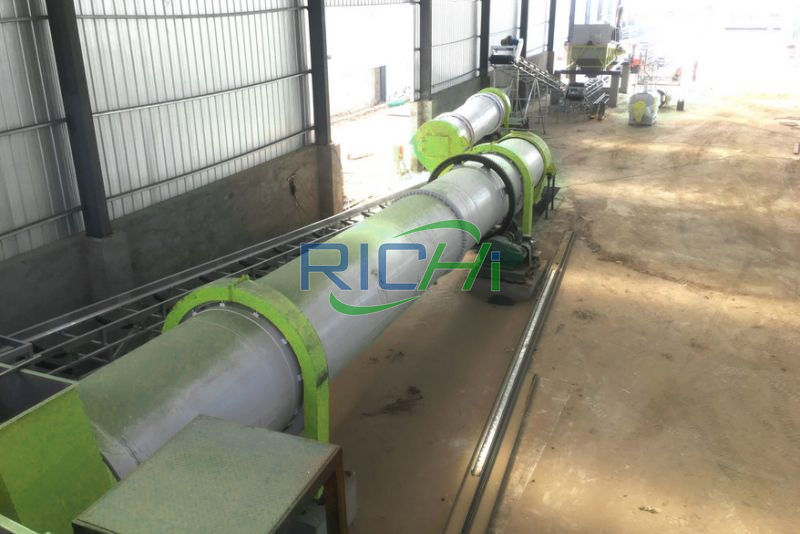
organic fertilizer plant In South Africa
- Country: South Africa
- Production: 6,000 T/A
- Ingredients: livestock manure
- cost: $160,000
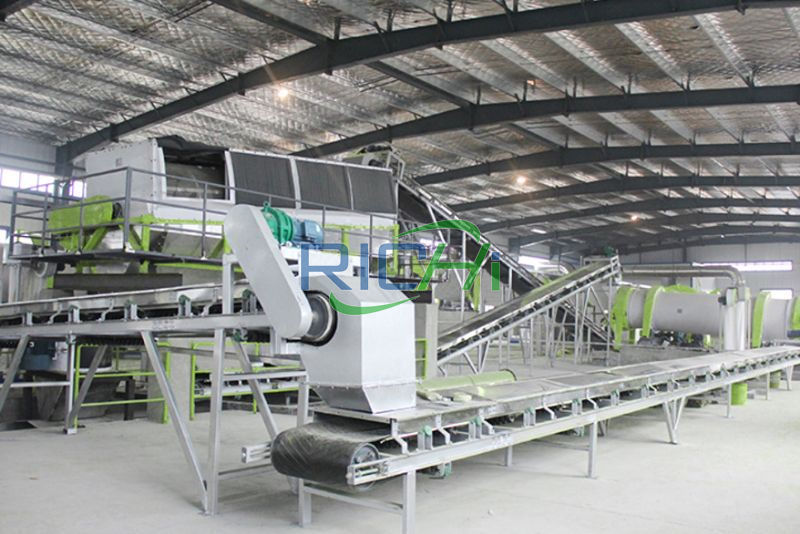
organic fertilizer plant In Malaysia
- Country: Malaysia
- Production: 30,000 T/A
- Ingredients: cow manure, Bagasse
- cost: $385,000 USD
With a broad experience in organic fertilizer industry, we are the ideal partner, from the first non-binding consultation to the joint planning of a turnkey solution, tailored to your individual requirements.
No matter what customized kind of organic fertilizer products you want to process (powder products or pellet products), contact us to get a plan and get a fertilizer production plant cost!
Different design and equipment configuration, different organic fertilizer production plant cost
Below, RICHI will show you some featured organic fertilizer production projects. You will see different design plans, different equipment configurations and different organic fertilizer production plant costs for these projects.
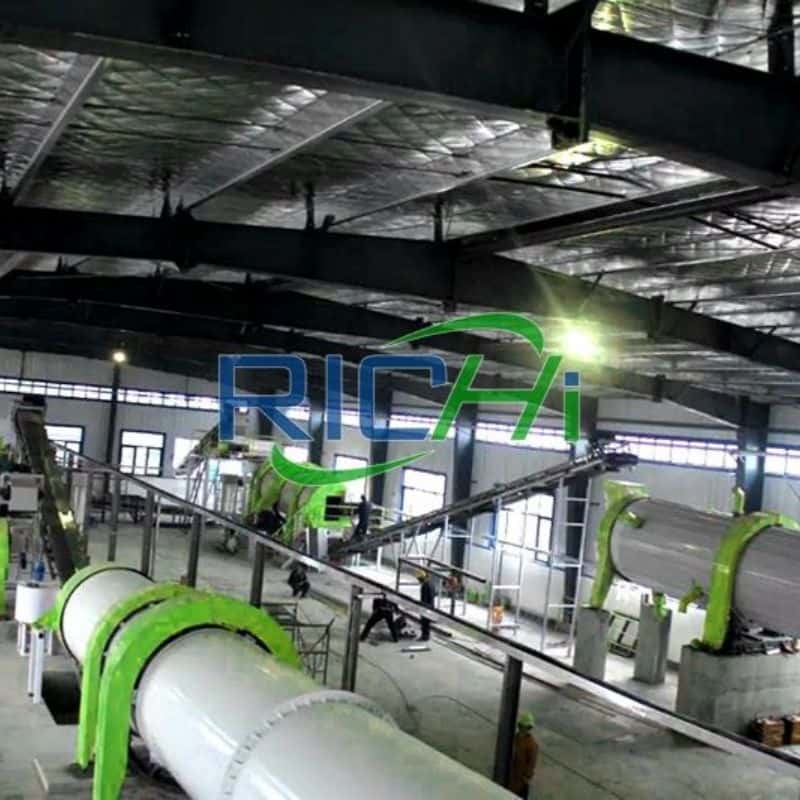
4T/H organic fertilizer production plant
—— RICHI MACHINERY ——
- Annual output: 8000 tons
- Organic fertilizer production plant cost: 310,000 USD
- Project area: 2812m²
- Construction content: A new steel frame structure closed production plant (building area, height 8m) and a steel frame structure office area (two-story steel frame structure, building area about 400m2). The main construction of the factory building is a raw material storage area and fermentation area. area, aging and decomposition area, crushing and screening area and packaging area.
- Working system: 8 people, implements an 8-hour/day work system, and has 250 working days per year.
- Raw materials: livestock and poultry manure*16000t/a, sawdust*4000t/a, fungicides*2.4t/a, trace elements*2.7t/a
- Product specifications: particle size ≤6mm, moisture content 30%
- Main equipment: turning machine, silo, crusher, powder screening machine, twin-shaft mixer, packaging machine, belt conveyor, etc.
4T/H organic fertilizer production plant Process flow design:
- The raw materials (livestock and poultry manure) are transported from Weng’an County Zhuzang Mingyuan Poultry Co., Ltd. to the fresh chicken manure stacking area in the factory. After entering the factory, bacteria and sawdust are added respectively, and they are fully mixed and stored for about 3-5 days (main function for heating).
- After the temperature requirements are met, the forklift will transport it to the fermentation tank, where it will be fermented for about 15 days. During the fermentation process, it will be turned over from time to time according to the fermentation situation.
- After the fermentation is completed, it is transported to the stockyard for aging and incubation to further increase the microbial content. After the incubation is completed, the material is partially in the form of lumps and needs to be crushed and screened. Those that meet the particle size requirements (6mm) will be sent to the packaging area for screening. It is temporarily stored in bags, and those with a particle size larger than 6mm are returned to the fermentation tank for re-fermentation.
- Since the moisture content of the product is relatively high (moisture content is about 30%) and the crushing process is mainly for crushing large products, the amount of dust generated during the crushing and screening processes is small, and the main pollutants in the crushing and screening process are Noise; the project workshop is a negative pressure workshop, which is fully enclosed and equipped with a negative pressure fan with an air volume of 11000m3/h. The workshop is continuously pumped to maintain a negative pressure state.
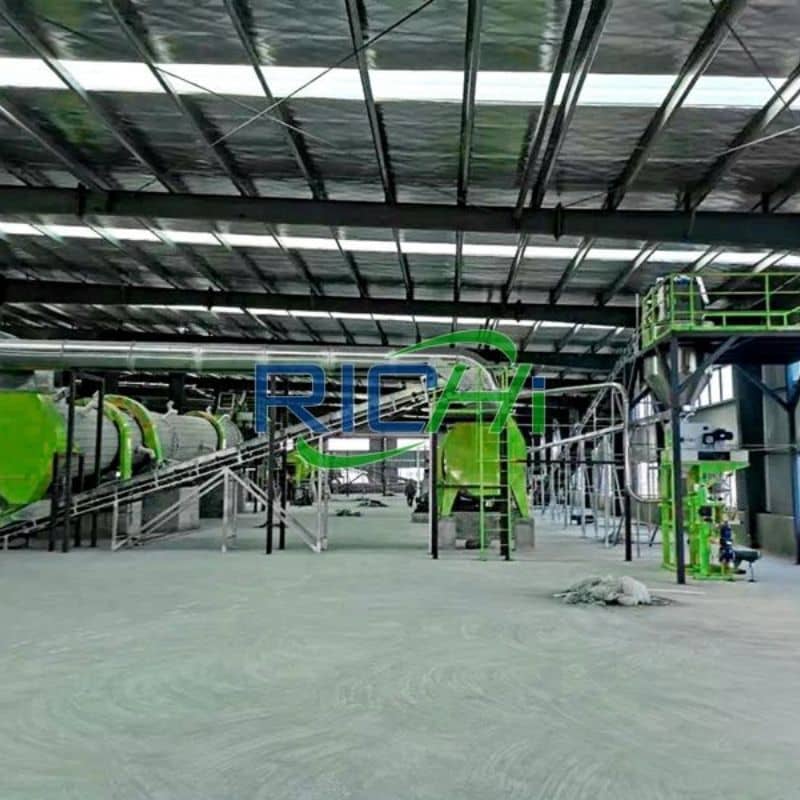
7-8T/H organic fertilizer production plant
—— RICHI MACHINERY ——
- Annual output: 20,000 tons
- Organic fertilizer production plant cost: 390,000 USD
- Project area: 1300m²
- Construction content: fermentation workshop, production workshop, power distribution room, guard room
- Working system: 15 people, working 8 hours a day, and the working days in the year is 330 days.
- Raw materials: pretreated livestock and poultry manure*20000t/a (mainly livestock and poultry manure and cow manure collected around the project), agricultural and forestry waste*5000t/a (including bacterial spawn residue, orange stems, sugarcane bagasse, straw, Rice husks, peanut shells, corn cobs, camellia oleifera shells, etc.), biological strains*1000t/a, deodorant*3t/a
- Energy consumption: electricity*2.7 million kw·h/a, water*103m3/a
- Main equipment: loader, dump truck, mixer, loading bin, conveyor belt, crusher, screening machine, granulator, automatic packaging machine, palletizer, etc.
7-8T/H organic fertilizer production plant Process design:
- Fermentation process: The fermentation process is carried out in the fermentation workshop. Agricultural and forestry wastes, livestock manure, bacteria and water are mixed in a certain proportion and then fermented. The fermentation adopts a fermentation method that combines aerobic turning and anaerobic composting. , use turning equipment to turn the pile, the fermentation workshop is closed and built. In the early stage of fermentation, the moisture content of the raw materials after mixing is about 60%. After the fermentation is completed, the moisture content of the fermentation clinker is about 30%. The maturation time of the fermentation material in this project is 20 About days. After fermentation, the clinker is transported by forklift and dumped to the next step.
- Crushing and mixing: After the decomposed materials are evenly sent to the crusher through the belt conveyor for crushing, the fermented clinker and other raw materials are put into the automatic batching system in proportion (the fermented clinker is input by a belt conveyor, and other raw materials are added manually) After batching, it is transported to the mixer via a belt conveyor for mixing.
- Granulation: After stirring evenly, it enters the organic fertilizer pellet mill for granulation. After screening, the finished granular product is produced. All unqualified products during the screening process will enter the mixing process and be re-mixed and granulated to become qualified products.
- Packaging and warehousing: Products are measured and packaged to obtain finished products, which are then stacked in the warehouse for sale.
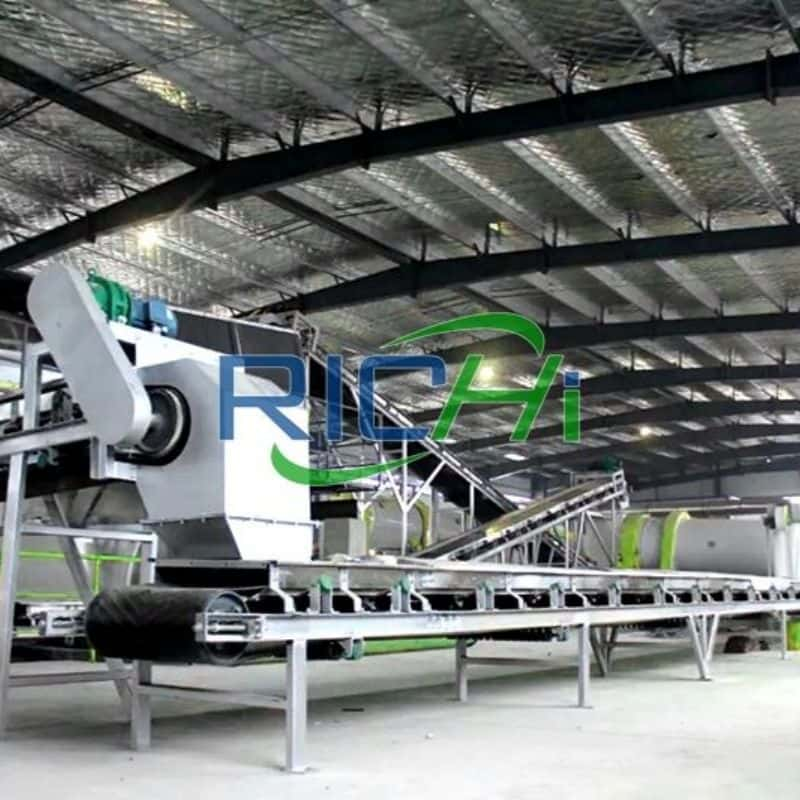
1-2T/H organic fertilizer production plant
—— RICHI MACHINERY ——
- Annual output: 3000 tons
- Small fertilizer plant cost: 185,000
- Project area: 2500m²
- Construction content: Construction of 3 steel structure workshops, namely raw material storage workshop, production and processing workshop and auxiliary material warehouse.
- Number of employees & work system: 6 employees. one-shift system, 8 hours and working 300 days a year.
- Raw materials: chicken manure*3200t, biogas residue*100t, rice bran*400t, egg shell*10t, sawdust*500, mushroom residue*100t, fermentation bacteria*6t, lime*10t
- Product specifications: uniform appearance, powdery or granular, suitable for fruits and vegetables, 40kg/bag, finished product moisture content less than 30%
- Energy consumption: water*10t/a, electricity*60,000kwh/a, diesel*4t/a
- Main equipment: fermentation tank, compost turner, hopper, belt conveyor, crusher, grading screen, silo, forklift
1-2T/H organic fertilizer production plant Process Description:
- Prepare raw materials: The pipeline of the biogas pool pressurized pool is connected to the storage pool of the raw material storage workshop. The biogas residue directly overflows from the pressurized pool through the pipeline and enters the storage pool. The chicken manure is loaded from the large-scale chicken farm into the project site through a loading truck and is directly poured into the raw materials. The chicken manure raw materials are stored in the storage workshop, and then shoveled into the fermentation tank feed port through a forklift. Add auxiliary materials rice bran, egg shells, sawdust or mushroom residue to prepare for compost fermentation in the tank, and control the moisture content below 70%.
- Compost fermentation: The fermentation method of this project is an aerobic fermentation compost fermentation process. The complete composting process consists of four stages: low temperature, medium temperature, high temperature and cooling. The composting temperature is generally 50~60℃. Regardless of the classification, the composting process has two fermentation processes: main fermentation and post-fermentation.
- Fermentation: The main fermentation of the project is carried out in the fermentation tank. The main fermentation process of this project takes about 7 days. After the main fermentation, the moisture content of the material drops to about 32%. The mature mixed material enters the production and processing workshop through the conveyor belt at the bottom of the fermentation tank for secondary composting fermentation.
- Turn over the pile: The compost temperature rises to above 60°C and is maintained for 48 hours before starting to turn the pile (but when the temperature exceeds 70°C, the pile must be turned immediately. The compost temperature should not exceed 70°C, otherwise it will cause dormancy or even death of beneficial microorganisms). TGenerally, the pile can be turned every 2 to 5 days to provide oxygen, dissipate heat and make the materials ferment evenly.
- Post-rotization and fermentation: On the basis of fermentation, as the temperature of the compost drops, the mesophilic microorganisms become active again, and the compost enters secondary fermentation. This period can be called the post-ripening fermentation or aging stage. This is conducive to the decomposition of all organic matter that is difficult to decompose into relatively stable organic matter such as humus and amino acids, greatly improving the fertilizer effect. Coupled with turning the pile, it will usually be decomposed in 15 to 20 days.
- Crushing and screening: The decomposed fertilizer enters the crushing and screening process. The large-grain fertilizer is crushed into fine particles through the crusher. After crushing, the fertilizer enters the screening machine to screen out the large particles and returns to the crusher for crushing again. Fertilizer with qualified particle size enters the metering and packaging machine. Packed and stored for external sale.
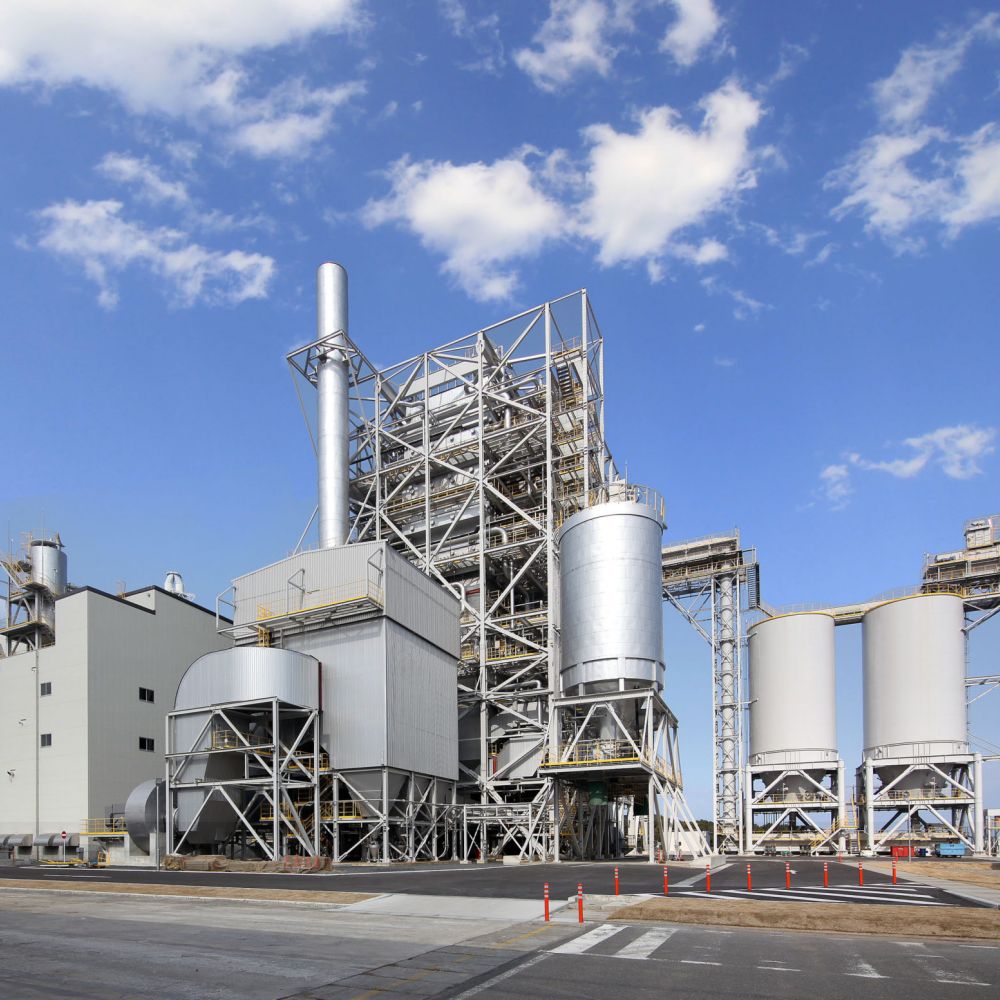
20T/H organic fertilizer production plant
—— RICHI MACHINERY ——
- Annual output: 50,000 tons (40kg/bag)
- Organic fertilizer production plant cost: 680,000 USD
- Project area: 5570m2
- Construction content: production workshop, fermentation workshop, warehouse, office, accessories room, temporary staff lounge and supporting facilities.
- Number of employees & work system: The labor quota is 8 people, single shift, 8 hours of work per day, and the annual production time is 300 days.
- Raw materials: cattle and sheep dung*54000t/a, fermentation bacteria*0.8t/a, biological bacteria*10t/a, trace elements*1.5t/a. The raw materials of this project are mainly cow and sheep manure.
- Energy consumption: water*2376m3/a, electricity*1 million KWh/a, natural gas*1.08 million m3/a
- Main equipment: horizontal crusher, granulator, dryer, cooler, bacteria adding tank, screening machine, packaging scale, hot air drying furnace (matching burner), screening machine, turning machine, forklift, conveyor belt, etc.
20T/H organic fertilizer production plant Process Design:
- Aerobic fermentation: Purchased cow and sheep manure (with a moisture content of 50% to 55% and has undergone preliminary fermentation) is transported to the factory in sealed vehicles. There is no need to dry it after entering the factory. It enters the fermentation workshop directly and is sprayed with fermentation bacteria. After aerobic fermentation, aging fermentation needs to be carried out, and the aging fermentation time is 10 days. The fermented cow and sheep manure is sent to the hopper by a forklift.
- Divide: The project products are available in two specifications, one is granular fertilizer and the other is powdered fertilizer. Therefore, after mixing, the raw materials need to be branched to the corresponding production lines to produce products of corresponding specifications. There are two discharge ports below the upper hopper, which are connected to two crushers respectively.
- ① Powder production: The raw materials enter the horizontal crusher for crushing, then are screened by the screening machine, and then sent to the packaging scale via a closed conveyor belt. They are quantitatively measured and packaged by the packaging scale before being bagged and stored in the warehouse.
- ② Pellet production: In order to make the granulated fertilizer more uniform and smooth, the cow and sheep manure to be granulated needs to be crushed.
- The crushed raw materials enter the screening machine for screening, and the raw materials that meet the specifications are screened out. The screened raw materials are transported to the organic fertilizer granulator machine for granulation by a closed conveyor belt.
- The granulated cow and sheep manure is transported to the dryer for drying, and the moisture in the material is reduced from 25% to 10%. The material after drying for the second time enters the cooling machine for cooling.
- The dried raw materials are screened again to screen out granules that meet the specifications. According to customer needs, part of the granular materials are transported by the conveyor belt to the bacteria adding tank to add biological bacteria agents and trace elements.
- After screening, the granular materials are sent to the packaging scale by a closed conveyor belt according to the different particle sizes. After being quantitatively measured and packaged by the packaging scale, the finished product is obtained.
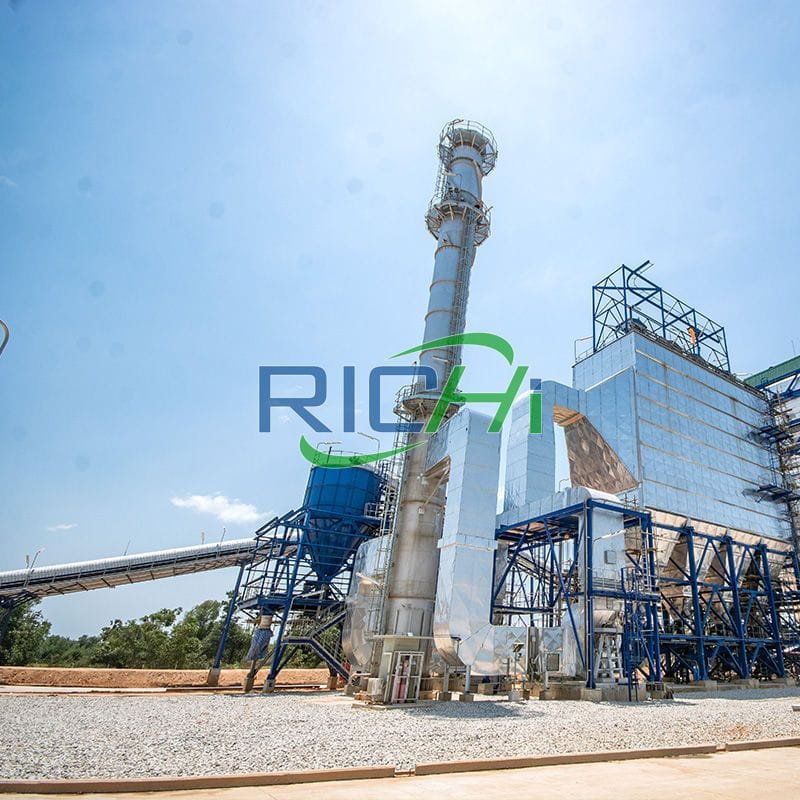
10T/H organic fertilizer production plant
—— RICHI MACHINERY ——
- Annual output: 50,000 tons per year
- Organic fertilizer production plant cost: 570,000 USD
- Project area:1920m2
- Number of employees & work system: The project has a labor quota of 9 people, and the work is implemented in a “two-shift system” with 8 hours per shift, 300 days of work per year, and 4,800 hours of operation throughout the year.
- Raw materials: 10,000 t of straw, 30,000 t of animal manure, 1,000 t of bacteria, 10,000 t of auxiliary materials, 3 t of deodorant, etc. The raw materials purchased for the project – the moisture content of manure is 60% to 80%, and the moisture content of straw is above 40%.
- Energy consumption: water*120m3/a, electricity*26,000kWh/a
- Main equipment: crusher, turning machine, conveyor, forklift, granulator, rounding machine, floor scale, packaging machine, mixer, pulverizer, trommel screen, electronic quantitative packaging scale, etc.
10T/H organic fertilizer production plant Process flow:
- The purchased straw, biological bacteria and livestock and poultry manure are mixed in a certain proportion and then enter the fermentation workshop for fermentation. The fermentation of organic fertilizer generally takes 45 to 60 days. Composting through this process can achieve three purposes: first, it is harmless; second, it is humic; third, it produces a large amount of microbial metabolites such as various antibiotics, protein substances, etc.
- Cool and pulverize the fermented fertilizer. The moisture content of the feces in the project can reach 60%, and the moisture content of the straw is above 40%. Water vapor is continuously generated during the fermentation process, so no waste gas is generated during the crushing process of this project.
- Use the screening machine to screen the crushed products. Suitable products enter the rounding machine for rounding. The larger products return to the crushing stage to be re-crushed and then enter the screening stage to be screened and rounded again.
- The rounded products have a uniform and round appearance, and are then packaged and stored in warehouse after being measured. The strain used in this project is bacillus, which itself can be used as a deodorant. At the same time, during the fermentation process, as Bacillus reproduces in large numbers, the stench emitted by feces can be better removed. The fermentation of this project needs to maintain a humidity of about 40%. Since there is constant water vapor during the fermentation process, there is no need to spray water separately.
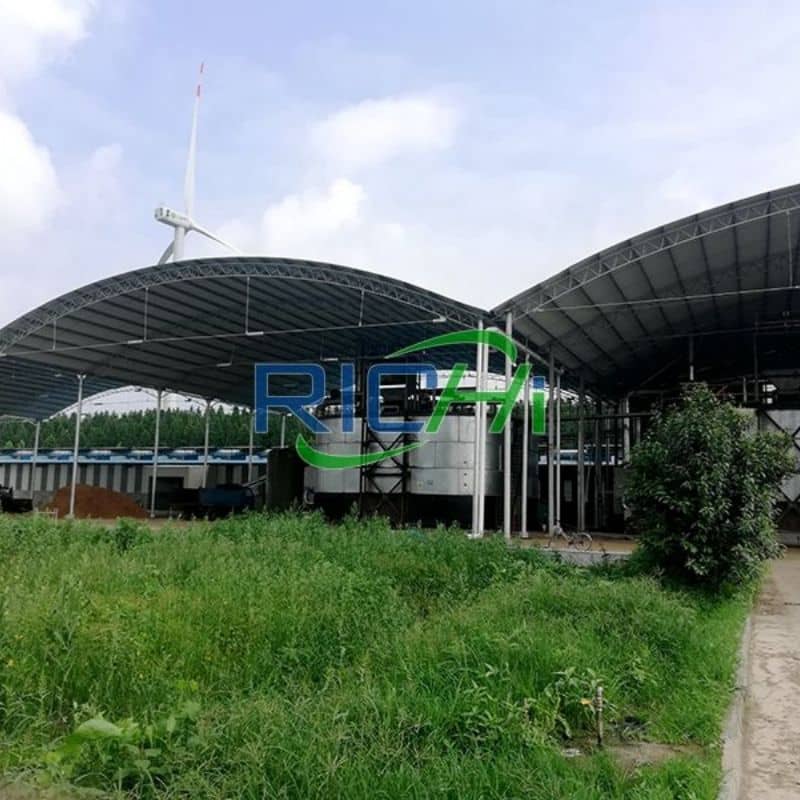
25 t/h organic fertilizer production plant
—— RICHI MACHINERY ——
- Annual output: 40,000 tons of quantum organic fertilizer
- Bio fertilizer plant project cost: 480,000 USD
- Project area: 3600m2
- Construction content: production workshop, laboratory, office, finished product area, raw material area
- Number of employees & work system: This project has a labor quota of 6 people and implements a one-shift working system, with each shift working 8 hours and 200 days per year.
- Raw materials: 35290t of finished organic fertilizer granules (granular shape, particle size 4.5-5mm, moisture content 15%, nitrogen, phosphorus and potassium content not less than 15.7%), water* 4710t (used to adjust the moisture content of raw materials
- Product specifications: particle size 1.5mm, moisture content 25%, packaging specification 25kg/bag
- Energy consumption: The annual electricity consumption of the project is approximately 26,000 kWh
- Main equipment: packaging machine, extruder, conveyor belt, forklift, screening machine, packaging scale, quantum energy machine, etc.
25 t/h organic fertilizer production plant process flow:
- The purchased raw materials are large granular organic fertilizers of 4.5-5mm, with a moisture content of about 15%. They are transported to the raw material area in the workshop for storage. During the unloading and storage process, spray water to adjust the moisture content of the raw materials to about 25%, and at the same time suppress Dust effect (the moisture content of the raw material is about 25%, which will not produce overflow and leachate).
- For loading, use a forklift to load the fertilizer into the hopper, and then transport it to the pellet extruder by the conveyor belt. The fertilizer granulation equipment extrudes the large fertilizer pellets into 1.5mm small pellets at room temperature, and then transports them to the packaging machine by the conveyor belt. Carry out packaging. During the transportation process, quantum light is irradiated to make the organic fertilizer more conducive to plant absorption. The irradiation time is 10 seconds.
- Conduct moisture content and pellet size testing on products during daily debugging and production. Official production will start on the same day after passing the test. If the inspection fails, return the raw materials and re-test.
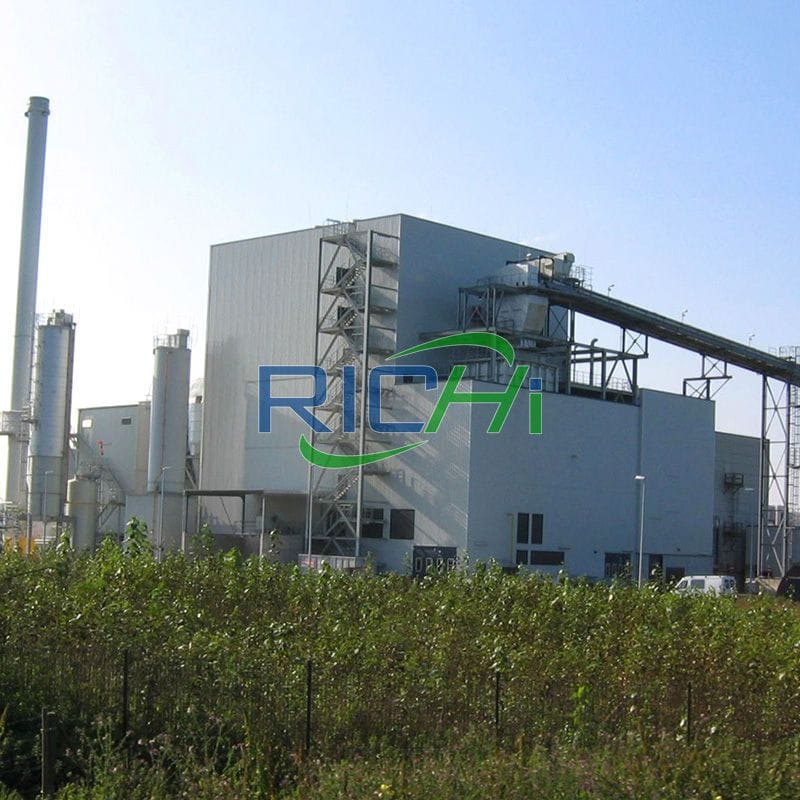
15T/H organic fertilizer production plant
—— RICHI MACHINERY ——
- Annual output: 30,000 tons per year
- Organic fertilizer production plant cost: 520,000 USD
- Project area: 1547.4m2
- Construction content: production workshop, office, dormitory, potted plant display area, test field, raw material warehouse, finished product workshop
- Number of employees & work system: The total workforce is 10 people, one shift is implemented, 8 hours a day, and 250 days a year.
- Raw materials: chicken manure*22000t, cow manure*2000t, humic acid*900t, rapeseed oil residue*2100t, bean cake*1500t, mushroom residue*1500t
- Main equipment: turnable trough, crusher, mixer, conveyor, screening machine, precision electronic scale packaging machine, sealing machine, etc.
15T/H organic fertilizer production plant Process flow:
The fermented raw materials purchased from outside are processed through crushing, stirring, sieving and other processes before being packaged and shipped out of the factory. The details are as follows:
- Proportion: Mix the ingredients that have been completely fermented according to the product formula.
- Crushing: The prepared raw materials are mixed together and crushed through a pulverizer. The top of the pulverizer is fully enclosed with a cover. If the raw materials are too dry and cause dust, septic tank sewage can be added to reduce dust.
- Stirring: The crushed raw materials are stirred evenly through a disc mixer.
- Screening: The mixed raw materials are screened, and the large particles are re-screened and then crushed and processed.
- Weighing: Weigh the processed finished products according to packaging specifications.
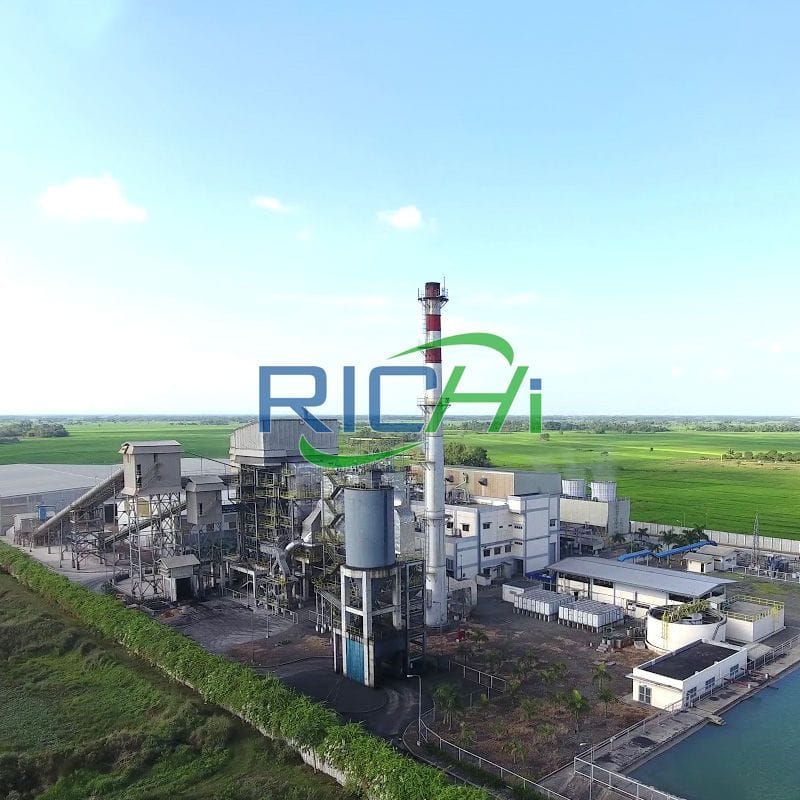
40T/H organic fertilizer production plant
—— RICHI MACHINERY ——
- Annual output: 300,000 tons (40 kg/bag)
- Organic fertilizer production plant cost: 1,650,000 USD
- Project area: 4590m2
- Construction content: Production plant (drying area, cutting, crushing, screening and mixing area), storage area, (packaging material storage area, auxiliary material storage area, finished product storage area), office, canteen
- Number of employees & work system: There are 20 employees, none of whom are accommodated in the factory. The project implements a 300-day work year, with three shifts and an 8-hour work system every day.
- Raw materials: 270,000 tons of wood peat*, organic fertilizer, bio-fertilizer, compound microbial fertilizer, 45,000 tons of seedling substrate warehouse, 21,000 tons of rotten wood chips, 6,000 tons of boron and magnesium fertilizer, 0.15 thousand tons of functional inoculants, 1.5 thousand tons of calcium oxide tons etc.
- Energy consumption: Annual electricity consumption is approximately 200,000 kW·h
- Main equipment: turning machine, cutting machine, screening machine, pulverizer, mixer, granulator, biomass hot blast stove, etc.
40T/H organic fertilizer production plant Process flow overview:
- The woody peat raw materials are pulled into the site by large trucks and then put into the dehydration workshop for drying, mixing, dehydration, and disinfection. The mixed materials are heated to 60-80°C for 4-8 hours for sterilization and dehydration. The dewatering and turning machine continuously turns and throws for 12 After an hour, use a forklift to cut and pulverize the dehydrated material with a dewatered moisture content of ≤30% through a cutting machine and pulverizer;
- Screen the cut and crushed materials through a screening machine to filter out materials above 20 mesh, and then mix them evenly through a mixer (the remaining 20 mesh);
- Materials below the mesh size are returned to cutting and crushing); the raw material ratio per ton of mixing is: 800kg of woody peat raw material, 50kg of calcium oxide, 50kg of boron and magnesium fertilizer, 100kg of rotten wood chips, and 5kg of functional inoculant;
- After mixing evenly and testing, the powdery materials that meet the organic fertilizer standards are measured, packaged and stored in the warehouse. Or according to customer needs, they are extruded and granulated through an organic fertilizer granulation machine (granulation specification 3-6mm) and then measured, packaged and stored in the warehouse (partial extrusion does not form, Or if the shape does not meet the standard, it will be returned to mixing, testing, extrusion and granulation, then measured and packaged for storage).
When you are faced with a production challenge, we often recommend starting with a production process analysis or engineering study. RICHI’s engineering team will listen to your objectives and desired outcome for a solution.
Finally, the RICHI team will provide you with recommendations for a custom solution, and provide you with the corresponding equipment configuration and organic fertilizer production plant cost. Because we take the time to thoroughly evaluate and get to know your process, we can tailor a robust solution to your specific needs. This capability is what truly transforms your production process.
Equipment of organic fertilizer production plant
Equipment price is the main component of organic fertilizer production plant cost. We can specify, design and build fully organic fertilizer plants, and configure a full set of organic fertilizer processing equipment to suit your working environment.
The following are the prices and parameters of the main equipment required for the organic fertilizer plant:
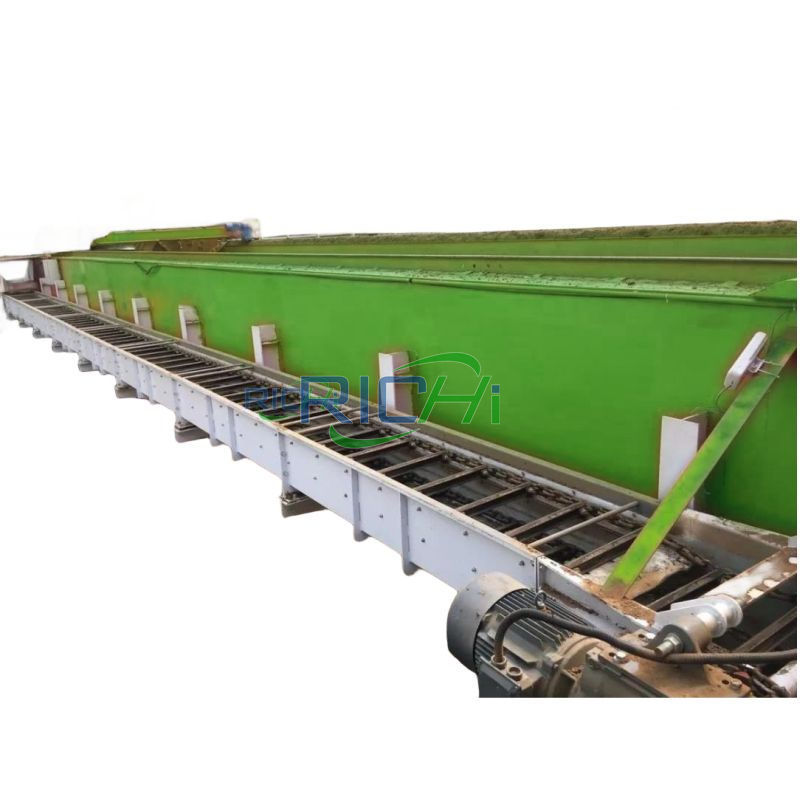
Compost Turner
Price: 10,000 – 200,000 USD
Turning height:
0.5-2.0 m
Motor:
32-300 KW
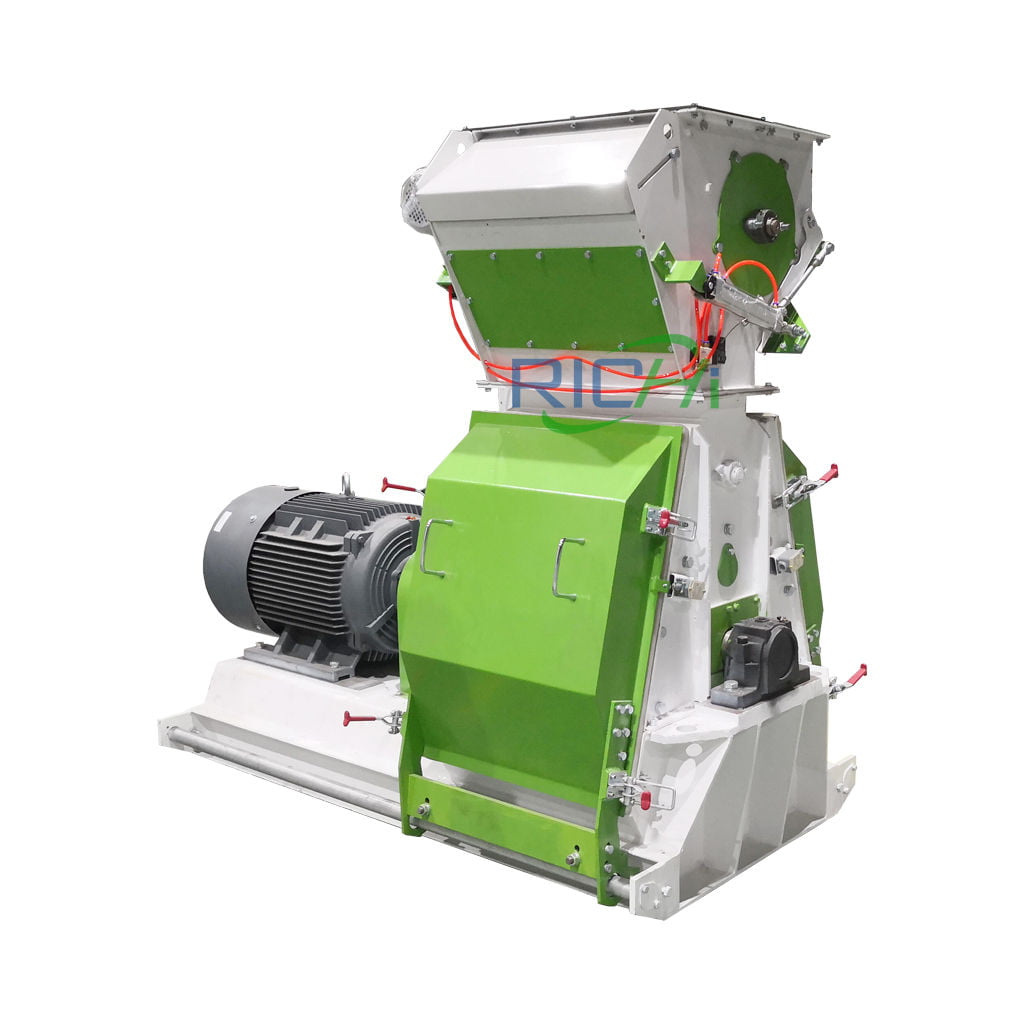
Compost Grinder
Price: 5,300-35,000 USD
Capacity:
3-25T/H
Main Power:
30-160KW
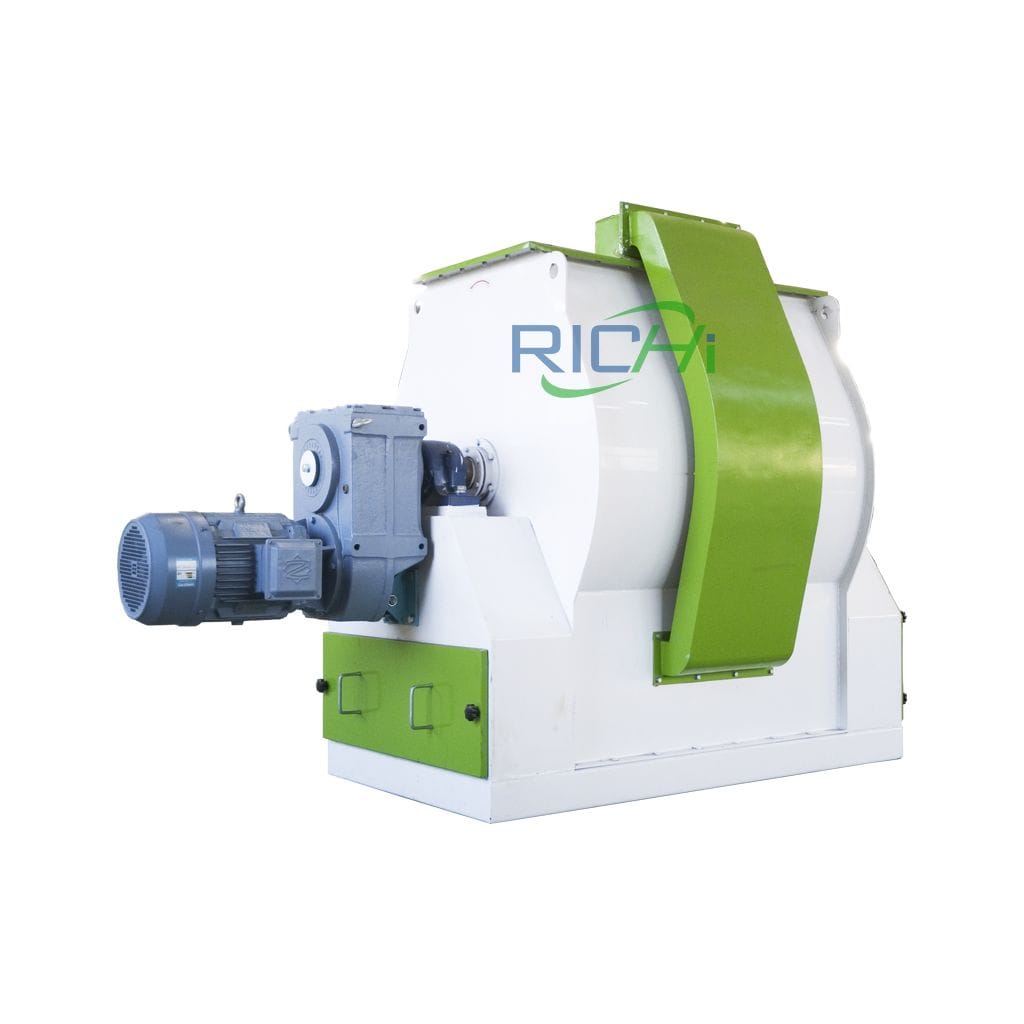
organic Fertilizer Mixer
Price: 2,800-36,500 USD
Capacity:
250-2000 kg/P
Main Power:
4-30 KW
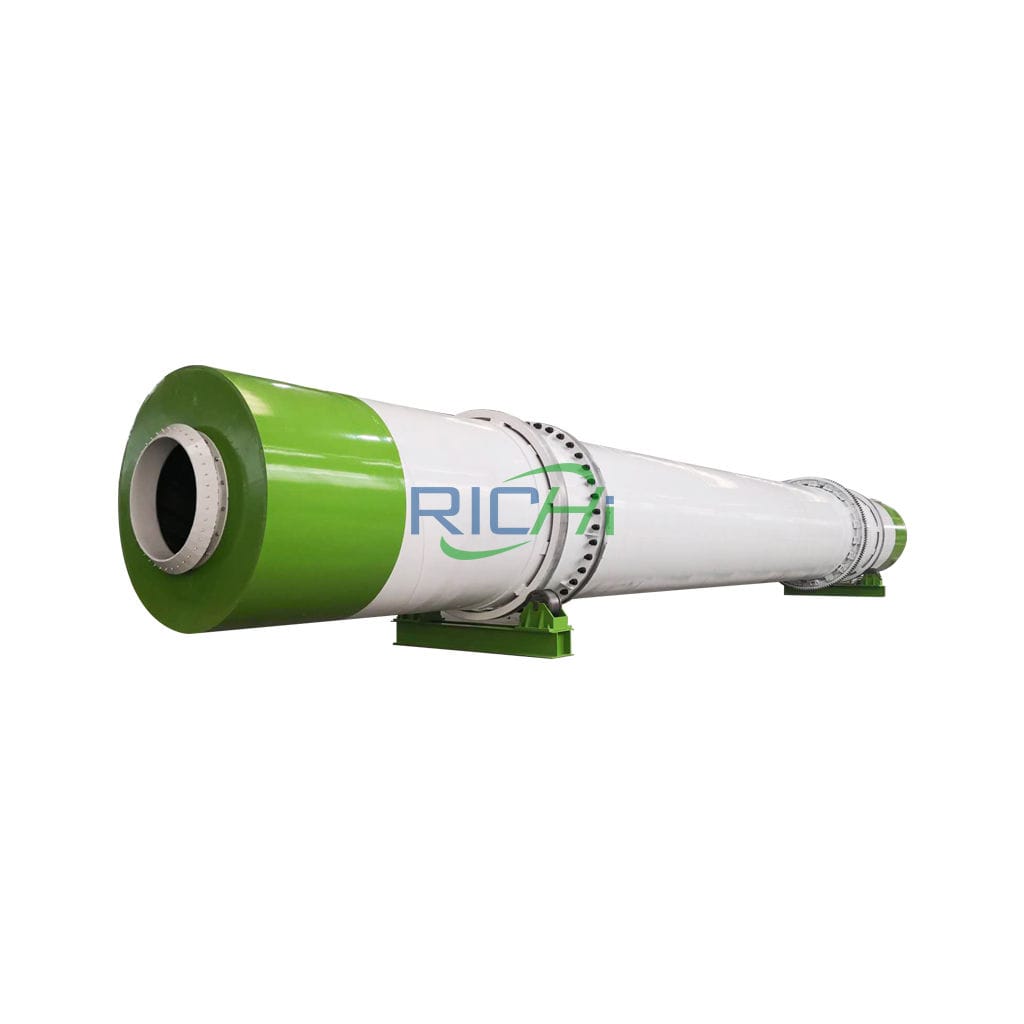
organic fertilizer Dryer machine
Price: 10,000-300,000USD
Capacity:
Customized
Rotate Speed:
3-8 R/Min
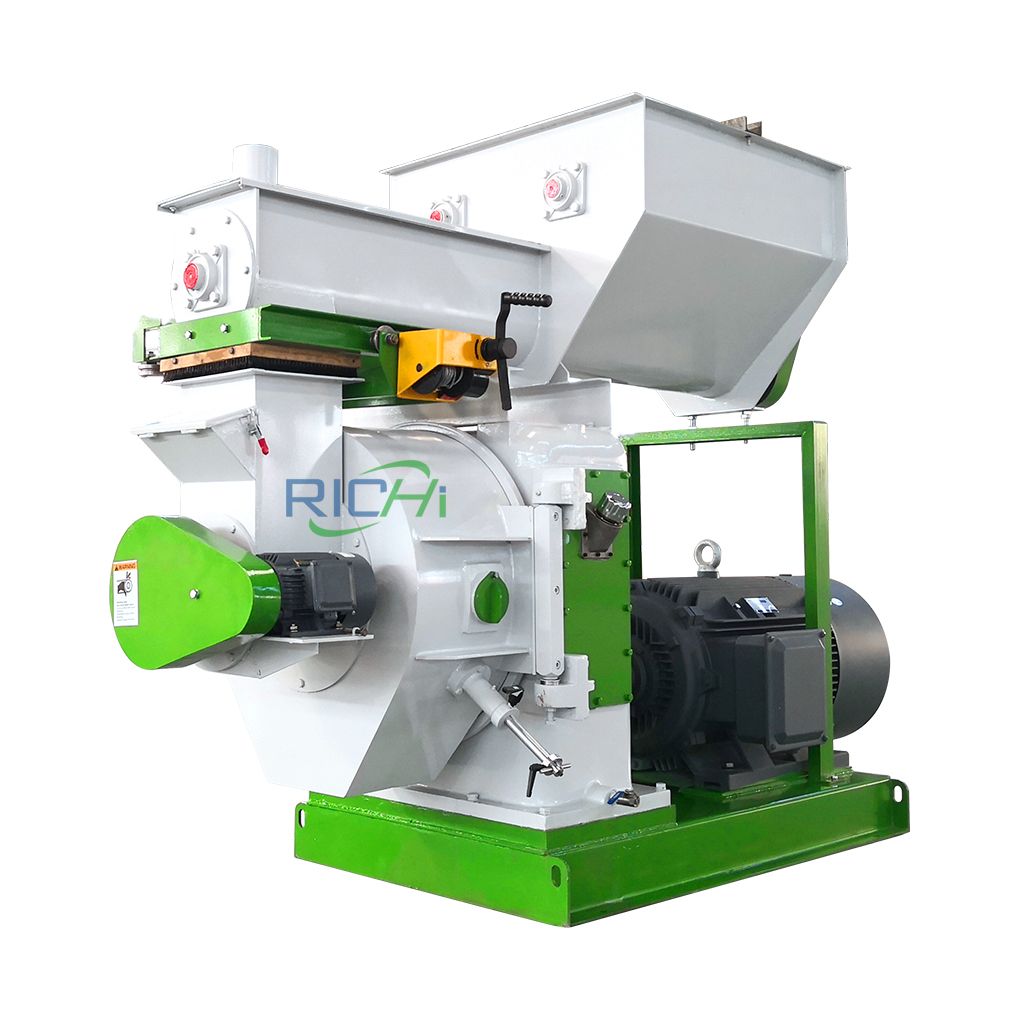
organic fertilizer pellet making machine
Price: 7,000-100,000 USD
Capacity:
1-12T/H
Main Power:
37-280KW
For RICHI Machinery, technology partnership means being a competent partner for our customers in all organic fertilizer production plant project phases. Together, we define and implement precisely the solutions that optimally fit the needs of our customers.
You already have a final design and are looking for high-quality manufacturing equipment for your production? Then we will produce exactly the equipment that fits your design and requirements.
Contact us to get the price of organic fertilizer equipment!
How to start a profitable organic fertilizer production plant?
As an organic fertilizer plant manufacturer, here, RICHI will introduce you to the main preparation process of the organic fertilizer plant project based on his own experience. (Of course, the following process is based on the premise that the organic fertilizer production plant cost is sufficient or already in place.)
1. Project introduction
Negotiate with government departments, apply for land, tax and other preferential treatment, and sign a project cooperation agreement.
2. Factory location selection
To determine the location of the organic fertilizer production plant project, choose a place with a good environment, no industrial pollution around, superior water, gas, electricity, heat and other energy sources, and convenient transportation. Organic fertilizer processing companies also need to consider the environmental protection requirements of their regions.
3. Land use application
Apply to local government departments for project land approval.
4. Industrial and commercial registration
Formulate the company’s articles of association, the ratio of investment shareholders, conduct industrial and commercial registration, and apply for a business license.
5. Trademark registration
Carry out trademark design, evaluate and confirm, and apply for trademark registration. The appearance, labels, etc. of the final product can also be initially set here.
6. Project establishment
Prepare a project feasibility study report and submit it to the government department; then prepare an environmental impact assessment report, submit it to the local environmental protection department, and conduct environmental impact assessment publicity as required.
7. Process determination
Cooperate with professional organic fertilizer equipment processors and determine the process plan based on final product expectations, brand planning, market positioning, or based on the composition, content, characteristics, etc. of raw materials and auxiliary materials.
8. Equipment selection
According to the process, inspect the equipment manufacturers and determine the selection of production equipment.
9. Factory design
Based on process and equipment selection, prepare preliminary design documents and submit them for approval; then prepare and confirm design drawings (including surrounding environment diagrams, factory layout diagrams, functional area distribution diagrams, etc.) and submit them for review.
10. Construction preparation
Conduct construction bidding and tendering, recruit qualified construction parties, and submit construction commencement reports.
11. Factory construction
Carry out civil construction and decoration construction successively according to the design drawings (including: water, electricity, gas, heat and other energy supply, production workshop, laboratory, warehouse, power room, office area, living area and other partition construction).
12. System construction
- Personnel: carry out structure construction, department formation, personnel recruitment, etc.;
- System: Improve standards, regulations, management regulations, etc.
13. Document processing
Confirm the production license review details and whether there are any requirements for certificate processing. Generally speaking, product quality certification, fertilizer registration certificate, application for organic fertilizer trademark, etc. are required.
14. Supplier selection
Raw materials, excipients, packaging bags and other materials, laboratory testing instruments and equipment, chemicals, etc., cleaning agents and disinfectants, etc. Other functional divisions involve the selection and determination of items, related suppliers and material brands, etc.
15. Submit for acceptance
Report to the environmental protection department for environmental impact assessment and acceptance; report to the fire protection and safety supervision departments for relevant acceptance.
16. Equipment installation
The equipment enters the organic fertilizer production plant for installation and debugging.
17. Preparation for testing the fertilizer machines
Improve material-related control, production-related operations, quality-related control, testing and other standards; and prepare relevant personnel, materials, sites and other conditions for the test machine.
18. Trial production
Use the finished product for sale as a template to conduct trial production, and improve the process, equipment debugging, layout, flow and other issues involved in the process and product one by one.
19. Submission for inspection and filing
Products that pass the test run, together with all forms of internal and external packaging, will be sent to the local government department for registration and filing, and to obtain certificates.
20. License application
Confirm the relevant processes and requirements for the production license application of the local regulatory department, apply and pass the review, and obtain the safety production certificate, then you can carry out formal production activities; confirm the relevant processes and requirements for the local organic fertilizer business license, apply for the business license and obtain certificate, you can carry out formal sales activities.
As can be seen from the above, the organic fertilizer production plant cost is only the first step in building an organic fertilizer project. If you want to successfully build an organic fertilizer plant, you still need a lot of processes.
Our team specializes in serving global organic fertilizer plant construction projects and transfers professional technical knowledge between various organic fertilizer plants.
We are able to provide advanced organic fertilizer production plant solutions integrating the most advanced manufacturing technology, processing equipment and testing equipment to always meet customer needs.
Start your organic fertilizer project get organic fertilizer production plant cost
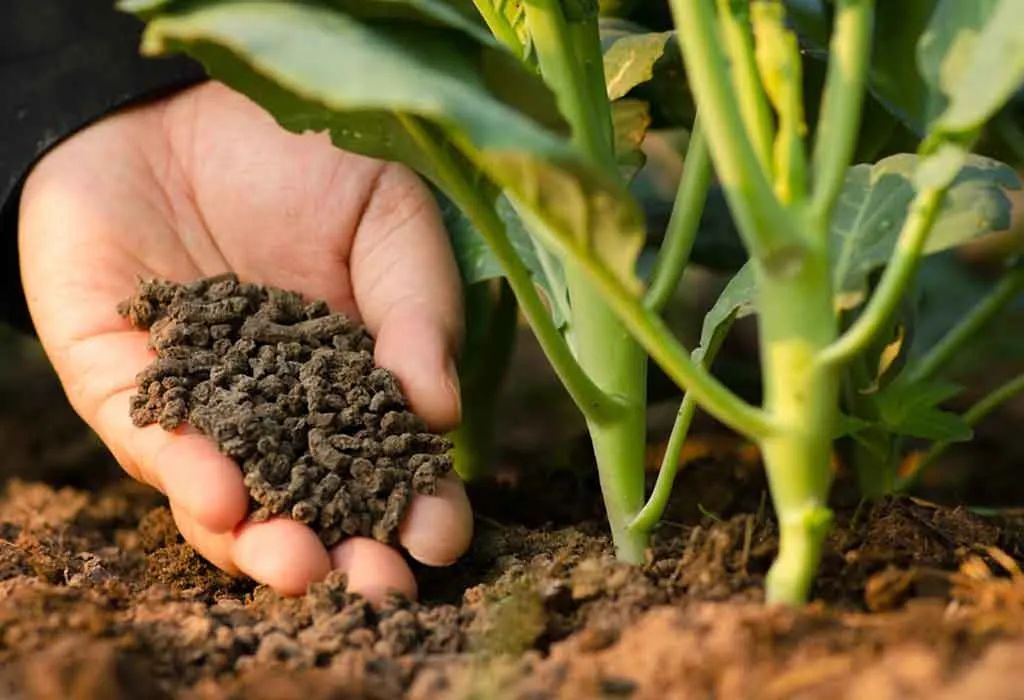
Organic fertilizers that have been developed and produced through scientific experiments are made from livestock and poultry manure as the main raw material and other agricultural wastes as auxiliary materials. They are made through processes such as microbial decomposition and composting.
This kind of fertilizer can improve the soil, inhibit the reproduction of harmful microorganisms, promote and regulate crop growth, improve crop quality, achieve “weight loss and increase efficiency”, and promote the high-quality development of green agriculture.
The current situation and development prospects of organic fertilizers are very broad.
As people pay more attention to sustainable agriculture and consumer demand for organic agricultural products grows, organic fertilizers will play a more important role in the agricultural field and contribute to sustainable agricultural development and food security.
RICHI Machinery has the practical experience to understand the impact of production process proposals because we have over thirty years of experience with organic fertilizer plant systems.
We do not recommend a fertilizer process and equipment without fully understanding your needs, we will not send you a quote hastily.
RICHI will take the time to understand your business needs, evaluate your current production needs, and provide innovative, cutting-edge organic fertilizer plant solutions to your challenges.
And ultimately provide you with the most reasonable organic fertilizer equipment configuration and complete organic fertilizer production plant cost. (Find us on YouTube)
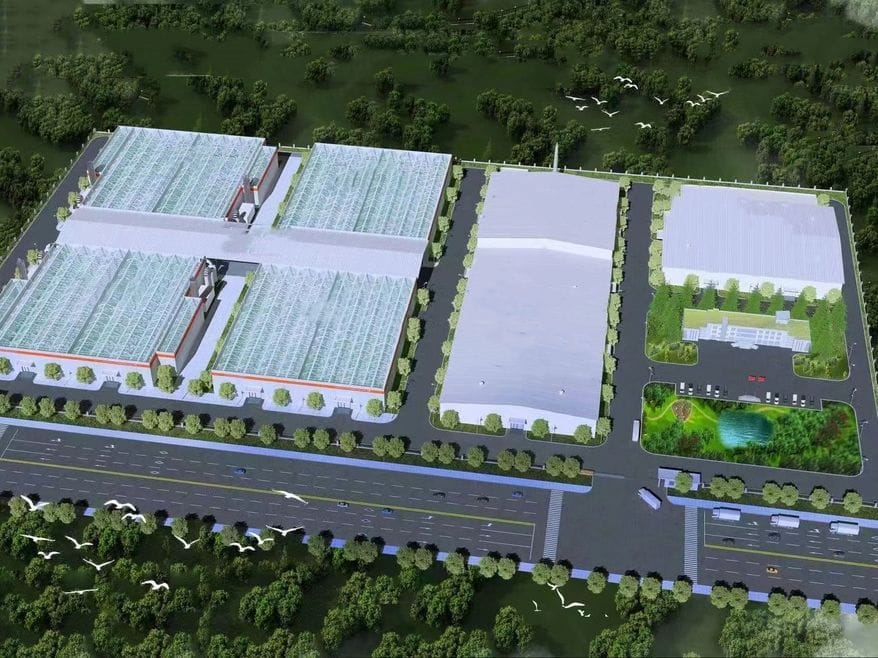
Why Richi Machinery?
At Richi Machinery, we believe there’s no substitute for experience, nd we have well over 25 years of it.
We have been in business for 25+ years.
Our long-term business strategy lends stability to our client’s organic fertilizer production plant projects.
We are innovators.
We don’t stand still—we are continually finding ways to improve the design and organic fertilizer production plant construction process to add value and save you money.
We are a lean organization.
Our clients work with just one project manager and one organic fertilizer production plant superintendent who have the authority to make decisions. This minimizes mistakes and expedites jobs, saving everyone time and money.
We have key employees with significant experience in the industry
Our key employees have an average of 10 years with the company. As a result, we deliver our jobs faster and help our clients get a return on their investment sooner than other companies in our industry.
We understand the importance of communication
We want to make sure our clients know what’s going on at all times. We anticipate problems to minimize client risk, and we listen to ensure that client needs are accurately reflected from proposal to organic fertilizer production plant completion.
We understand customer satisfaction includes being cooperative
We work as a team with the owner, subcontractors, and suppliers. We strive to make the organic fertilizer plant construction process a pleasant experience for the client.
We are committed to quality
We see each organic fertilizer production plant as a reflection of our values and build each one as though it were for ourselves. We strive to do it right the first time, improving the investment value of our client’s property.
We work safely
We have minimal lost time due to injuries and our insurance costs are lower, which saves our clients money from organic fertilizer production plant cost.
We work in tough environments
We understand the challenges, maintain flexibility in our work schedule, and minimize errors in order to deliver your organic fertilizer equipment on time and on budget.
